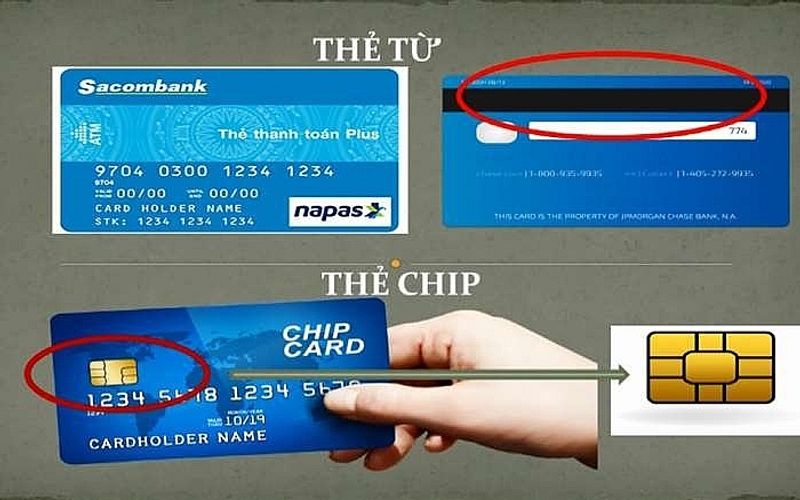Magnetic stripe bank cards phased out
Chip cards are expected to help reduce risks of card-related crimes and increase payment safety.
Vietnamese banks stop issuing magnetic stripe cards from March 31 and replace those with chip-based card, according to a State Bank of Vietnam (SBV) draft circular.
The circular provides a roadmap according to which, by late 2021, all banks have to migrate to chip-based cards. Currently, they are issuing both chip-based and magnetic stripe cards.
Chip cards are expected to help reduce risks of card-related crimes and increase payment safety.
Before the transition, only international debit and credit cards in Vietnam were chip-based while domestic cards used the decades-old magnetic stripe technology, which is more vulnerable to identity theft.
Seven banks including Vietcombank, BIDV, VietinBank, Agribank, TPBank, Sacombank and ABBank, have already joined the switch. These banks combined issue 70% of total cards in the market.
Vietnamese commercial banks are required to issue chip-based ATM cards to improve customers’ transaction security. Photo: g-pay.vn |
Earlier, the central bank had proposed that all active ATM cards must be chip-based by December 31, 2021, advancing the deadline to dump magnetic striped cards by nine months.
According to SBV, the move is aimed at encouraging local banks to issue chip cards as soon as possible and arrange resources to support customers to convert their cards from magnetic to chip-based to prevent an interruption to their use of ATM cards.
“The newly-issued circular will help prevent banks from issuing magnetic cards and alters the government’s plan for migrating to chip cards from 2021,” stated the SBV.
The SBV also extended the deadline for ATM and point-of-sales (POS) in Vietnam to accept chip cards in payment, which is in line with the current digitalization process at banks.
As of the end of 2020, Vietnam has around 94 million bank cards in circulation, in which the majority are magnetic stripe cards, according to SBV's statistics.
According to banks, issuing a chip card can cost some US$1.50-2.50, meaning they will have to spend between US$105 million and US$175 million for the transition, in addition to the cost of upgrading ATMs and core banking systems.
Under the Vietnamese government’s strategy, by the end of 2025, at least 80% of adults in Vietnam would have bank accounts and the number of non-cash transactions will expand by 20-25% annually.











